- Home
- Linda Chapman
The Secret Garden Page 9
The Secret Garden Read online
Page 9
He swallowed and turned, his face now set like stone. “Mrs. Medlock, look into finding a school for my niece.”
Mary stepped toward him. “No, I didn’t mean any harm!” she pleaded. “Please.”
Her uncle ignored her. “Find somewhere to educate some civility in her,” he said coldly. “In the meantime, I do not wish to see or hear her. Do I make myself clear, Mrs. Medlock?”
“Yes, sir.” Mrs. Medlock nodded.
As Mary was pulled away, she glanced back and saw her uncle sinking down among the dresses on the floor. He looked broken and completely alone.
18
Prisoner!
Mrs. Medlock pushed Mary into her bedroom, and Mary heard the key turn. She tugged frantically at the door handle, but she was locked in.
“Open this door!” she shouted.
“If you need the bathroom in the night, you’ll see we’ve put a chamber pot under your bed,” Mrs. Medlock said through the door. “Martha will let you out in the morning.”
Mary heard Mrs. Medlock walking away down the corridor. “Let me out!” she cried, rattling the handle. “I didn’t mean to hurt anyone. I just wanted to help.” Anger erupted inside her. “I know you’re enjoying this!” she yelled. “I know you are! But I won’t be sent away again—I won’t!”
In a rage, she ran to the rocking horse and pushed it hard, ramming it into the door. It smashed into the wood and overturned. As it banged down, a secret hatch in its belly opened and papers spilled out.
Mary gasped, her rage disappearing with her shock. She crouched down and picked the papers up. They were letters. And they were in her mother’s handwriting. . . .
My dearest Grace, they all began.
Mary leafed through them. As her eyes raced over the words, she realized they were all from her mother to her aunt. But why had they been hidden away? As she read some of the passages, she began to understand. The letters were between two sisters who kept no secrets from each other. They talked about their lives, their children, their husbands, in a way that they would not have wanted anyone else to see. Mary skipped over the bits about life in India, about her and her father, her eyes seeking out the passages where her mother talked about Grace’s illness, Colin, Archie . . . It was strange to imagine her forbidding uncle ever being called by such an informal name.
Outside, the sky darkened, the sun set, and the moon rose. Mary turned on her bedside lamp and carried on reading the letters in bed, putting things together, starting to make sense of some of the mysteries that surrounded her. She only looked up from them when she heard faint screams. She swallowed, her fingers tightening on the letter she was holding. Colin. He would be wondering why she didn’t go to visit him as usual. She glared at the locked door, longing to get out.
Mary fell asleep fully clothed. She only woke in the morning when Martha came in with a tray. Mary hastily shoved the letters under her bedcovers. To her relief, Martha was too busy looking at the overturned rocking horse to notice.
“What’s been going on here, then?” she said. Not waiting for an answer, she heaved the horse up and pushed it back into its place. “Mrs. Medlock’s in a right rage with you,” she said to Mary. “There’s just stale bread for breakfast, no porridge.”
“I don’t care,” said Mary defiantly. “How long is she planning on keeping me prisoner?”
Martha’s mouth twitched. “Hark at you. You’re no prisoner. I’m to leave your room unlocked when I’ve finished, but if I were you, I’d stay out of everyone’s way.”
Mary felt a rush of relief. She could leave her room and go to the garden. She could see Colin and Dickon. She jumped up and hugged Martha.
Martha gasped in surprise. “Let me go, miss—you’re fair squeezing me to death!” But as Mary drew back, she saw the smile on Martha’s face.
“I’ll make my bed,” Mary said hastily as Martha went over to the rumpled sheets.
“You can’t do that, miss,” Martha protested.
“Oh, yes I can.” Mary pushed Martha toward the door. “In fact, I order you to leave it.” She smiled. “You can go now.”
Shaking her head as if she didn’t know what to make of her, Martha left.
Mary gathered up the letters and put them into her bag. Then she got changed and made as good an attempt as she could to make her bed, not wanting Martha to get into trouble. She smoothed the sheets and then set off. She needed to go to the garden and find out if a suspicion the letters had put in her mind was true. If it was, then maybe she had discovered where the magic of the garden came from!
Mary slipped out of the house and headed across the lawn. She ran toward the trees and found the gate. Pulling the curtain of creepers back, she went straight into the part of the garden with the statues and flower beds. Dickon was there already, his coat off, humming a song. He had some gardening tools with him, and he was digging up the weeds near the temple at the far end. The robin was perched on the handle of a gardening fork that was dug into the ground, and the dog was snuffling near Dickon’s feet. The plants around him were a riot of spring color—reds, oranges, pinks, purples, blues.
The dog spotted Mary as she approached and ran over to say hello.
“Morning,” called Dickon.
“Morning!” gasped Mary, running past them.
“Hey, where are you going?” Dickon called.
“Follow me!” she cried.
The robin circled around her head. She let it lead her through the garden, trusting that the magic would help it to know where she needed to go. It took her through the giant ferns and into thick trees. The bushes seemed to close in on her, the vines snaking at her ankles, branches blocking her path as if the garden didn’t want her to go that way, but she forced her way through, following the robin. It twittered loudly as if it was urging her on. Determination beat through Mary. The garden had yet more secrets to reveal, and she was going to find them out.
She burst into a clearing that she had never been in before. She stopped as she took in the oak tree at the center of it. There was an old swing hanging from a strong branch. The robin landed on the oak tree and sang knowingly at Mary.
“Oh,” Mary said softly, realizing she had found what she had been looking for. She walked slowly up to the swing and crouched down beside it. Then she looked back at Dickon, her face serious. “This is the place,” she whispered. “The place where everything happened.”
Dickon looked confused.
“It’s where my aunt came to die,” Mary went on.
The robin flew down to land on her shoulder. Dickon came over, approaching her slowly as if she was a wild animal he didn’t want to frighten. “What do you mean?”
Mary told him what she had worked out from the letters. “My aunt was very ill with cancer, and my mother came over from India to see her in her last days—she brought me with her, but I don’t remember. I was only little.” She looked at the swing. “My mother wrote that she wanted to be with my aunt when she died and she knew my aunt wanted to die here in this garden by this tree. It was her special place.”
She looked around the clearing. “My aunt made this whole garden. She grew the flowers. She put the statues in place. She designed the temple. After she died, I think my uncle locked the garden up because it caused him too much pain.” Her eyes met Dickon’s. “I believe my aunt is the reason the garden is magic. I think she wanted me to find the key so”—she took a breath—“so I could use the garden to cure her son.”
Mary looked fiercely at Dickon, daring him to laugh. But he didn’t.
“I haven’t got long,” she went on. “They’re sending me away to school. I have to see if the garden can heal Colin before I go. But I can’t do it on my own, Dickon. I need your help.”
He nodded solemnly. “Tell me what you need me to do.”
19
Unlocking the Past
If I can help Colin get better, I don’t care what happens to me, Mary thought fiercely as she crept through the corridors with Dickon behind her. They can send
me to school and do whatever they like.
To her relief, through one of the windows, she saw Mrs. Medlock setting out in the car. At least that was one less person to avoid!
Colin was waiting for them. “Are we going to the garden again?” he asked eagerly.
“Yes,” Mary told him.
“Why didn’t you come and see me last night?” Colin asked her accusingly as they set off down the corridor. “I waited and waited, and you didn’t come.”
“I couldn’t,” she said. “I was locked up. They want to send me away to school, Colin!”
“Send you away?” echoed Colin.
She nodded miserably. “Your father is determined. Mrs. Medlock worked out I’d been visiting you, which made him angry, and then they found I’d been in your mother’s room. It was in such a mess from the other night.”
“I will tell Father I don’t want you to go!” declared Colin.
Mary sighed. “I don’t think that will work. But let’s not talk about this now. Let’s just think about the garden.”
“Our garden!” Colin said happily.
Mary hesitated. It wasn’t their garden—she knew that now—but she wasn’t sure he was ready to hear that.
When they reached the garden, she put her plan into action. The stream had cured Hector’s leg. Maybe it could do the same for Colin?
At first, Colin didn’t like the idea of going in the water. “It looks cold,” he said doubtfully as they helped him remove his outer clothes. “I think I shall just sit here on the bank.”
“No, you’re going in,” Mary told him. “You’re not to be a baby about this,” she said warningly.
He started to frown but then sighed. “Oh, very well,” he grumbled.
Mary and Dickon began to lower him gently into the flowing water. Colin gasped. “It is cold!” The leaves of the ferns around the stream seemed to shiver in sympathy. “Very, very cold.” His eyes widened, and he clutched Mary’s arm. “I don’t think I can do this.”
“Course you can,” said Dickon cheerfully.
“No, I don’t think so!”
“We’ve got you,” Dickon told him.
Colin looked from Dickon to Mary and then took a breath. “Well,” he said bravely as they lowered him a little further, “I suppose it’s not so freezing after all.”
Soon he was sitting in the stream, the pure, clean water flowing over him with only his shoulders and head above the water. “I’ve done it!” he exclaimed, his face breaking into a look of delight. “I’ve actually done it!”
The ferns began to stop shivering as he smiled.
“Now you can learn to float,” said Dickon. “Hold your arms out and lie back.” Colin hesitated. “Mary and I have you,” Dickon said.
Colin did as he was told, leaning back and turning his face up to the blue sky. As he stretched his arms out to the side, a look of joy crossed his face. Dickon nodded at Mary, and they removed their hands.
“And now you’re on your own,” said Dickon as they backed quietly away.
Colin grinned and then started to laugh, and as he did so his hands splashed into the water, sending droplets raining over Mary and Dickon. Mary squealed, and Colin laughed even louder.
When he was ready to come out, Mary and Dickon helped him get dressed again, and then they all set to work on the grounds around the temple. Colin was happy to sit on the grass, pulling out the weeds from a patch of bright spring bulbs—daffodils, bluebells, little purple grape hyacinth—while Dickon dug and Mary crouched down, separating out plants that were growing too close together. They worked in companionable silence for a while.
“Done!” Colin declared. “Move me over there now, please!”
Mary and Dickon hoisted him up by his arms and put him down in a new spot. Humming to himself, he carried on with his work. Dickon and Mary smiled at each other.
Looking up, Colin caught the smiles. “What?” he said suspiciously.
“Nothing. We’re just enjoying your happiness,” said Mary.
“We’re all happy, aren’t we?” said Colin contentedly.
“True enough,” said Dickon, nodding.
“We’re pirates!” exclaimed Mary.
“We’re lords!” Dickon grinned.
Colin threw his hands dramatically into the air. “We are conquerors of this fair and beautiful land! This is our garden and we love it!”
“No, it’s not,” said Mary quickly.
Colin frowned. “What?”
“It’s not our garden,” Mary said. “It’s happy we’re here, but it was made by someone else and it still belongs to them.” She bit her lip and decided it was now or never: she had to tell Colin what she knew. “Come with me. I need to show you something.”
Dickon gave her a concerned look. “Mary . . .”
“I have to show him, Dickon,” she said. “He needs to see.”
“See what?” Colin said warily.
“Come with us,” said Mary.
She and Dickon pushed Colin’s wheelchair through the temple, past the broken statue, through the grove of umbrella plants and the overgrown trees. The wheelchair bumped and bounced over the tree roots. Colin gripped the sides tightly. He’d fallen silent. Eventually, they reached the clearing with the oak tree and the swing.
As they pushed him into the clearing, Mary felt the air go still as if the garden was holding its breath.
As Colin’s eyes fell on the oak tree and the swing, a look of horrified understanding dawned on his face. “Stop! I command you to stop!”
She halted. Colin stared at the swing, his face paler than ever.
“You know what happened here, then?” Mary said softly.
A muscle jumped in Colin’s jaw. “They told me my mother died in her favorite clearing, where she used to have a swing. Is this the place?”
Mary nodded.
Colin started to struggle upright, using his arms to push himself up to a standing position. “Why would you bring me here?”
“Because you needed to see it,” said Mary, shocked at the hurt in his eyes.
“Would you like to see the place where your mother died?” he cried.
“My mother died in a hospital, alone and in pain!” Mary retorted. “I thought you would like to see that your mother died in a peaceful place, a better place. I thought that it would help!”
Colin sank back into his wheelchair. “Well, you thought wrong,” he muttered. There was a long silence. When he spoke, his voice was tight. “Can you fetch me some flowers, please, Dickon? The white ones.”
With an anxious look at Mary, Dickon nodded and did as he was asked.
“And then can you take me home?” Colin continued stiffly. “I don’t want to be here.”
“You don’t understand!” said Mary, knowing her plan was going horribly wrong and wanting desperately to make it right. “Colin, your mother didn’t want to leave you, but she had no choice. She came here to die because it was beautiful, and I think that, when she died, she made the garden magical. It cured Hector’s leg and . . .” She swallowed. “And I believe it could . . .”
“No!” Colin cut in furiously, his knuckles white as he gripped the arms of his chair. “Don’t say it. Don’t!” he ground out. “I didn’t want to see the dresses and I didn’t want to see this. I want to go home!”
Mary lapsed into silence as Dickon handed the white flowers to Colin. Without a word, Colin scattered them on the grass, bright splashes of white against the green.
His shoulders slumped. “Take me home, please,” he said to Dickon.
“Of course.”
Dickon wheeled Colin away. As they headed back through the trees, the plants around Colin’s chair seemed to shrink, gunnera and vines curling in on themselves, branches drooping and leaves turning brown with sadness as he passed.
Disappointment crashed over Mary. She didn’t know what she’d expected. Maybe that Colin would find some peace in seeing where his mother had died, in knowing that she was still there, in her w
ay, in the garden. Mary hadn’t meant to hurt him. She looked around the clearing. What was she going to do now?
“Tell me,” she whispered to the garden. “Please show me the way.”
Mary couldn’t sleep that night. She got up and fetched her mother’s letters, then she sat on the floor in her room, looking through them, her mind turning over everything again, trying to work out what to do for the best.
A memory flashed into Mary’s mind. Her father was hugging her, wiping away her tears. Your mother is sad at the moment, monkey, and her sadness has made her unwell. Don’t be angry with her that she doesn’t want to see you. It’s not her fault. One day you’ll understand.
Do I understand now? Mary thought. She certainly felt like she was beginning to see the past differently.
She looked up and saw her mother standing by the window. Her eyes were full of sadness—sadness, Mary now knew, for the sister she had lost.
Mary was too shocked to speak. A gust of wind rushed through the room. It swept the letters up and sent them swirling high into the air. Mary grabbed them.
“Mummy, I’m sorry,” Mary whispered. “I didn’t understand. But I think I do now.”
Her mother’s gaze met hers, and she smiled, then vanished. Mary suddenly knew what she had to do.
In the morning, she went straight to Colin’s room with the letters. The door was locked. She rattled the handle.
“It’s me. Can you call Martha so she’ll let me in?”
“I don’t want to see you today,” said Colin in a hard voice. “And I don’t want to go to the garden.”
“But I’ve got something to show you,” Mary pleaded. “I found some letters from my mother to yours. They talk about you and her illness, how Archie—your father—worries about your health so much because of his own hunchback. She says he’s scared you’ll be a hunchback too and that he’s desperate to protect you. She talks about how fearful she is that he’ll project his own fears onto you and make you ill after she’s gone, which is exactly what he has done. I think you’ll like to see them and it may change how you feel. Please?”

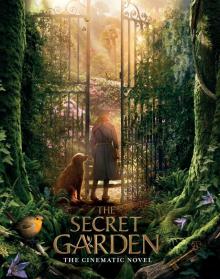 The Secret Garden
The Secret Garden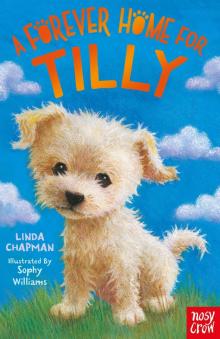 A Forever Home for Tilly
A Forever Home for Tilly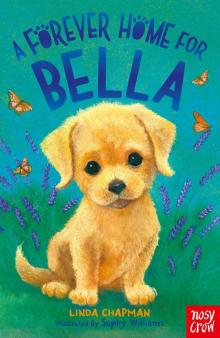 A Forever Home for Bella
A Forever Home for Bella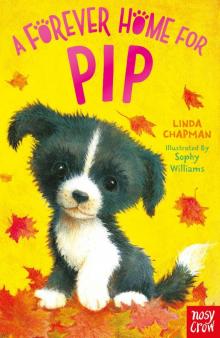 A Forever Home for Pip
A Forever Home for Pip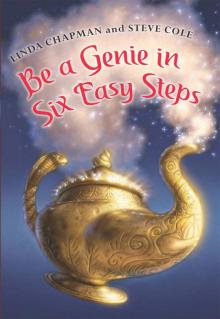 Be a Genie in Six Easy Steps
Be a Genie in Six Easy Steps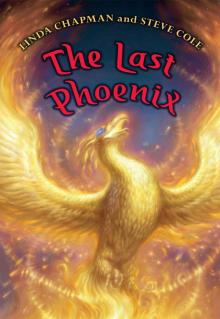 The Last Phoenix
The Last Phoenix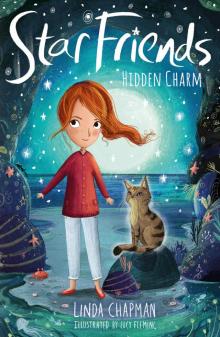 Hidden Charm
Hidden Charm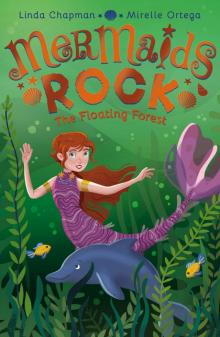 The Floating Forest
The Floating Forest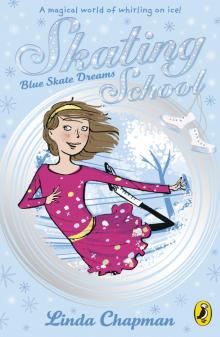 Skating School: Blue Skate Dreams
Skating School: Blue Skate Dreams Unicorn School: the Treasure Hunt
Unicorn School: the Treasure Hunt Bright Lights
Bright Lights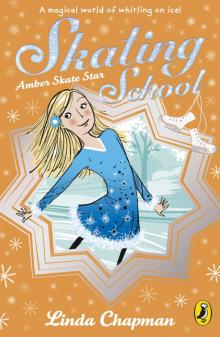 Skating School: Amber Skate Star
Skating School: Amber Skate Star The Spider Gnomes
The Spider Gnomes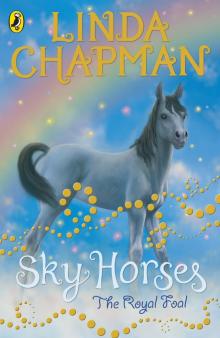 Sky Horses: the Royal Foal
Sky Horses: the Royal Foal Not Quite a Mermaid
Not Quite a Mermaid Not Quite a Mermaid: Mermaid Fire
Not Quite a Mermaid: Mermaid Fire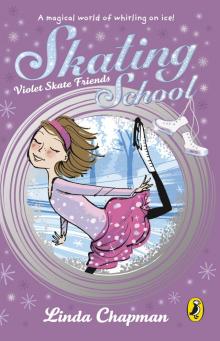 Skating School: Violet Skate Friends
Skating School: Violet Skate Friends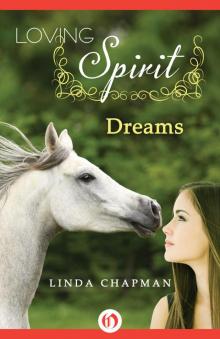 Dreams
Dreams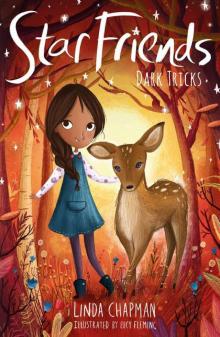 Dark Tricks
Dark Tricks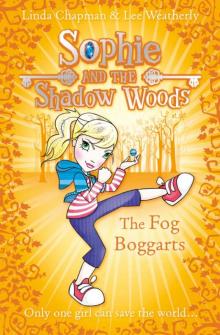 The Fog Boggarts
The Fog Boggarts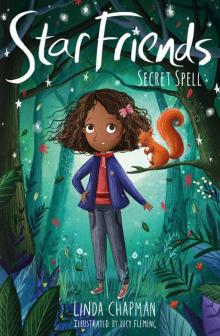 Secret Spell
Secret Spell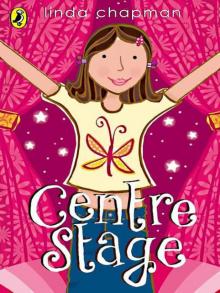 Centre Stage: A Novel
Centre Stage: A Novel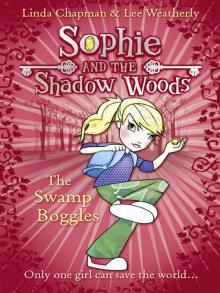 The Swamp Boggles
The Swamp Boggles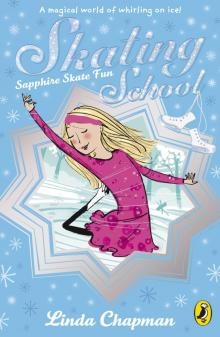 Skating School: Sapphire Skate Fun
Skating School: Sapphire Skate Fun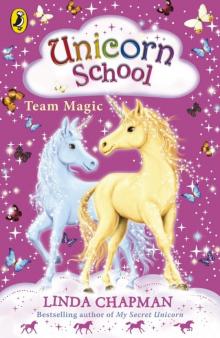 Unicorn School
Unicorn School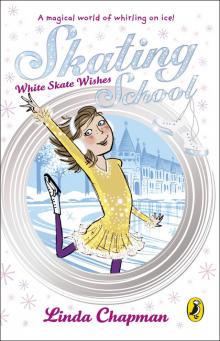 Skating School: White Skate Wishes
Skating School: White Skate Wishes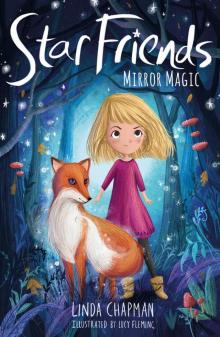 Star Friends – Mirror Magic
Star Friends – Mirror Magic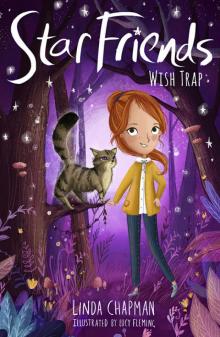 Wish Trap
Wish Trap My Secret Unicorn
My Secret Unicorn The Goblin King
The Goblin King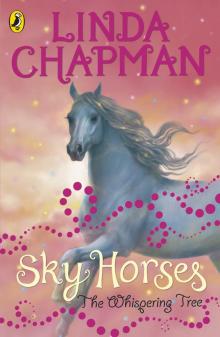 Sky Horses: the Whispering Tree
Sky Horses: the Whispering Tree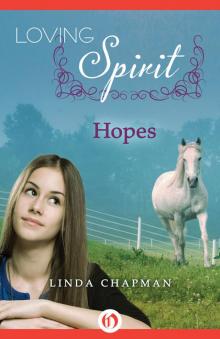 Hopes
Hopes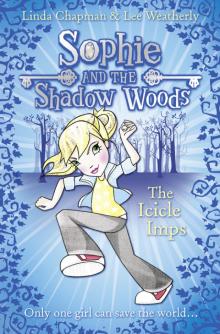 The Icicle Imps
The Icicle Imps Stardust
Stardust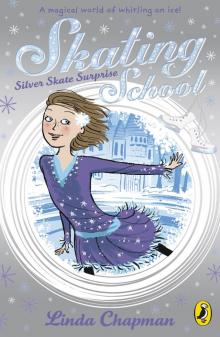 Skating School: Silver Skate Surprise
Skating School: Silver Skate Surprise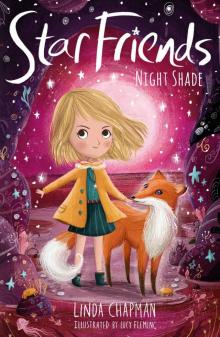 Night Shade
Night Shade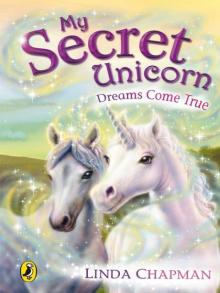 Dreams Come True
Dreams Come True Skating School: Scarlet Skate Magic
Skating School: Scarlet Skate Magic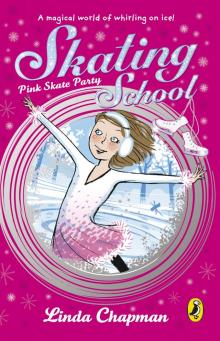 Skating School: Pink Skate Party
Skating School: Pink Skate Party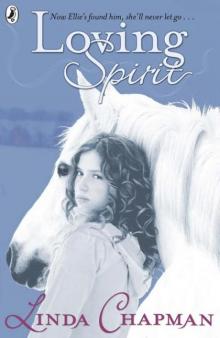 Loving Spirit
Loving Spirit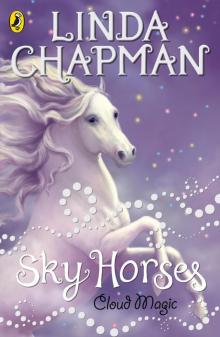 Cloud Magic
Cloud Magic